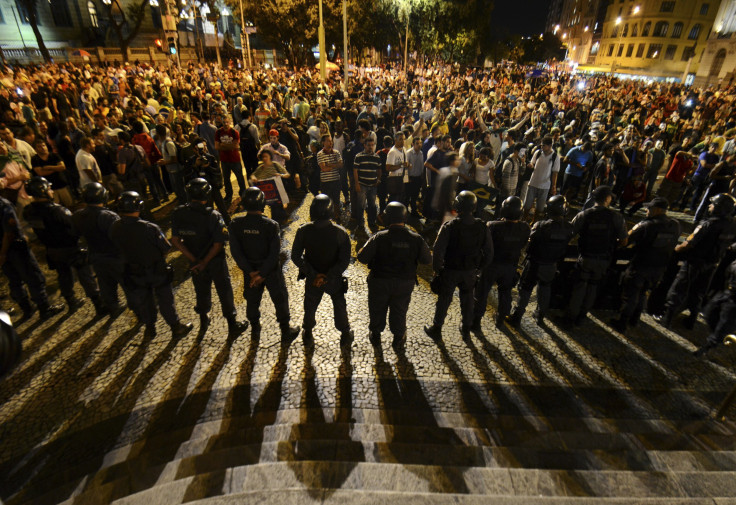Brazil’s Dilma Rousseff Announces Harsher Punishment For Corruption; Wants More Foreign Doctors For Healthcare System

The first mass in Brazil's recent history is yielding results. President Dilma Rousseff promised on Monday a slew of law reforms that answer the demands of the demonstrators.
Rousseff met with the governors of the 27 Brazilian federal states and announced a referendum that will open the door to a constitutional reform to change the political system and make it more accessible to society. Among other resolutions, she also promised reforms to the transportation and health care systems, according to Argentinean newspaper La Nación.
The country “has made it clear that it does not want to stay still where it is,” Rousseff said.
One of the key measures Rousseff is planning is to harden the fight against corruption. “It is our priority -- the legislation should equate corruption to murder or torture with much more severe punishment,” Rousseff said. She added that the new law will touch all three powers of government and that she will push a law on transparency, according to Brazilian newspaper O Globo.
The meeting also covered the reform of the transportation system, in which the Brazilian government will invest $25 billion. “We need social participation in this. We are in the midst of forming a Public Transportation Council, where society and users will have full participation," she said.
Rousseff also touched on the topic of foreign doctors, which had been considered by the Brazilian government earlier this year. She emphasized the need to invest in hospitals and send doctors to remote states and the outskirts of big cities, where hospitals are often understaffed.
In regard to complaints from the doctors' professional association that this was a hostile measure toward Brazilian physicians, she replied, “The health of the people of Brazil is and should always be the priority." As a study pointed out, in Brazil only 1.8 percent of physicians are foreign, as opposed to 37 percent in Great Britain and 25 percent in Australia, as reported by Argentinean newspaper Clarín.
Follow me on Twitter: @PReyMallen
© Copyright IBTimes 2024. All rights reserved.











